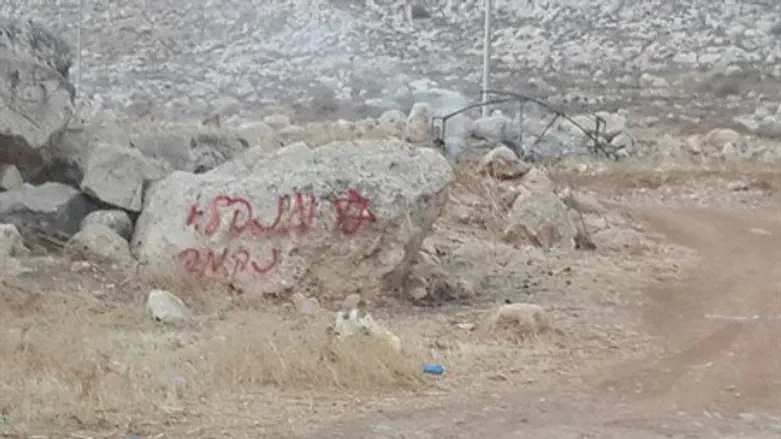
The Shin Bet (Israel Security Agency) internal security service has released for publication the arrest of two Jewish youths suspected of carrying out the "price tag" arson of a Bedouin tent on August 13.
The two suspects, who were formally indicted Monday, were identified as Avi Gafni (19) of Bet Shemesh, and a minor who could not be named for legal reasons.
19-year-old suspect Avi Gafni:
That arson attack took place less than two weeks after the firebombing of a Palestinian Arab home in the village of Duma, which killed an infant child and fatally wounded his two parents. The mother, Riham Dawabshe, succumbed to her wounds last night.
Although no suspects have been identified in that attack and police have admitted they have no leads as yet, officials said they believed "Jewish extremists" were responsible, based primarily on the Hebrew graffiti daubed on the Dawabshe home.
A wave of arrests of radical Jewish activists followed, who the Shin Bet claimed were part of an informal "terrorist organization" which carried out price tag vandalism and encouraged violence against Arabs. Several of them were placed under "administrative detention" - a controversial counter-terrorism measure usually reserved for dangerous Arab terrorists which allows suspects to be detained indefinitely without trial.
The subsequent arson of the Bedouin tent near Kfar Malikh, close to Bet El, was accompanied by red graffiti on a rock nearby which read "Administrative Revenge" together with a star of David, leading authorities to believe it was carried out in response to the wave of arrests.
Three people were arrested in connection to that attack, including Gafni and two minors, one of whom has been charged along with him. The pair have been charged with arson, conspiracy to commit a crime and obstruction of justice.
Gafni, originally of the city of Beit Shemesh west of Jerusalem, had been living in a small outpost near the town of Kochav Hashachar in Samaria at the time of his arrest.
He had previously been the subject of an administrative distancing order from the region, after authorities suspected his involvement in various acts of vandalism against Arab-owned property.